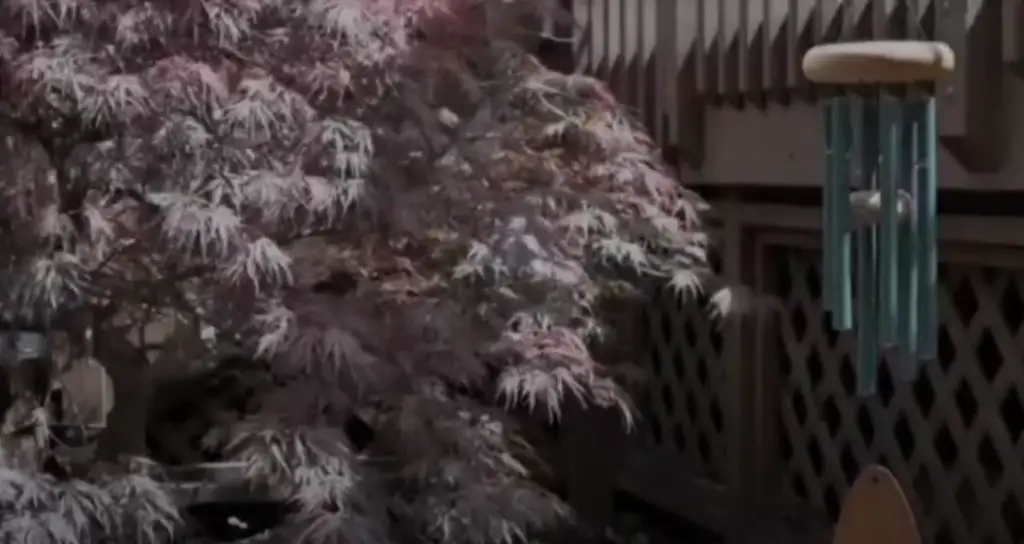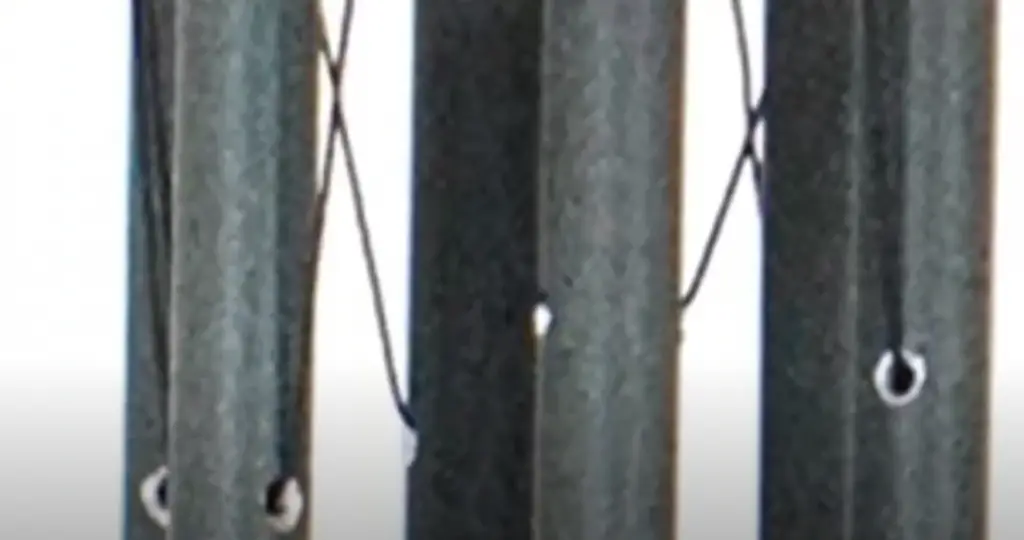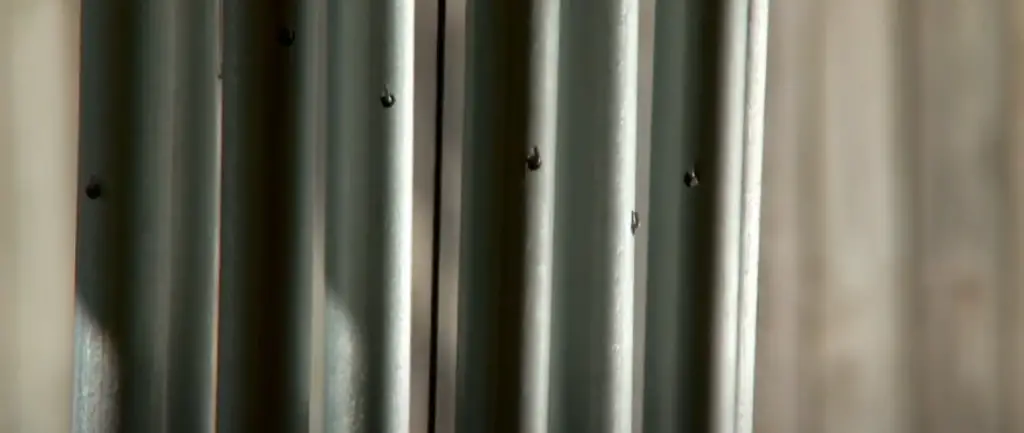When it comes to wind chimes, there are many factors to consider. One of the most important decisions you’ll make is what material to choose for your wind chimes. Copper and steel are two of the most popular materials, but which one is better? In this article, we will discuss the pros and cons of copper vs. steel wind chimes so that you can make an informed decision about which type is right for you!
Table of Contents
What is the best material to use for wind chimes?
The best material to use for wind chimes is subjective, as it depends on the desired aesthetic and sound quality. Copper and steel are two of the most popular materials used to make wind chimes. Each has their own unique advantages and disadvantages that should be taken into consideration when making a decision.
Steel has its share of advantages too; it tends to be lighter in weight, making it easier to hang from a single hook or beam. Steel also has a more modern look and can often be found in various colors and finishes. The sound produced by steel wind chimes is usually brighter than that of copper chimes, which may be desirable for some people. [1]
Is copper good for wind chimes?
Yes, copper is a great material for wind chimes. Copper is an affordable metal that can be easily manipulated and molded into various shapes. It’s also very durable and waterproof, making it ideal for outdoor use. Copper wind chimes produce a beautiful sound when the wind blows through them, so they are perfect for adding some subtle music to your garden or patio area. Additionally, copper has natural antimicrobial properties which means it’s less likely to attract bacteria or other organisms. With proper care, copper wind chimes can last for many years.

Which metal is used in wind chime?
Wind chimes are typically made using metals such as copper, aluminum, nickel, or steel. Each metal has its own unique properties that affect sound quality and aesthetics. Copper tends to create a mellower tone with more depth while steel produces higher-pitched tones with greater resonance. Aluminum and nickel offer lighter weights than copper or steel while also creating beautiful sounds when they move in the wind. Ultimately, it will come down to personal preference and what type of sound you’re looking for when choosing which metal is right for your wind chime.
How do you clean copper wind chimes?
Cleaning copper wind chimes is relatively simple. To begin, make sure the chimes are dry before you start cleaning them. Then, mix together equal parts of white vinegar and water in a bowl or bucket until it’s sudsy. Dip an old toothbrush or soft cloth into the solution to lightly scrub away dirt and debris from the surface of the copper. If necessary, you can use a bit more elbow grease to remove stubborn stains or tarnish. Once you’re done cleaning, rinse off your chimes with clean water and wipe them down with a cloth or paper towel to dry them off. [2]
Do wind chimes rust?
Yes, wind chimes can rust depending on the material used to make them. If they are made of iron or other metals that contain iron, they will eventually corrode and rust from exposure to humidity and moisture in the air. Copper is much less likely to rust due to its natural antimicrobial properties, so it’s an ideal choice for outdoor wind chimes if you want something that won’t require a lot of maintenance over time.
Which color wind chime is best for home?
The best color wind chimes for your home will depend on the look and feel of the space you’re trying to create. If you want a more traditional or rustic vibe, then copper or bronze colored chimes can be great options. For a modern or contemporary look, silver or steel-colored chimes might be better suited. You could even choose multicolored chimes if you’d like to add some extra visual interest to your décor. Ultimately, choosing the right color wind chime is all about expressing yourself and finding something that fits in with your overall design aesthetic.
How do you keep wind chimes from rusting?
To help prevent your wind chimes from rusting, it’s important to keep them clean and dry. If you live in a humid climate or near the ocean, make sure to wipe down your wind chimes with a cloth regularly to remove any moisture that might be on them. You should also avoid leaving them outside during inclement weather or periods of heavy rain. Additionally, if you have iron or steel wind chimes, consider applying a thin coating of clear protective sealant every couple of years to help protect against corrosion.
Where should you not put wind chimes?
You should avoid putting wind chimes in places where they will be exposed to strong winds or extreme temperatures. Wind chimes can be damaged if they’re placed in an area with frequent gusts of wind, so it’s best to put them in a sheltered spot such as a covered porch or patio. Additionally, you should also keep your wind chimes out of direct sunlight since the intense heat can cause them to fade over time.

Where do you hang a metal wind chime?
The best place to hang a metal wind chime is in an area where there’s enough air circulation for the chimes to move. If you want your wind chime to make music, then it should be placed somewhere that won’t be blocked by trees or buildings that could restrict airflow. Generally speaking, outdoor porches and balconies are great spots for hanging wind chimes because they provide plenty of open space for the breeze to move freely. You can also hang them indoors near windows or other openings if you prefer, though you might not get quite as much sound from them. Ultimately, the spot you choose will come down to personal preference and what kind of atmosphere you’d like your wind chimes to create
FAQ
How do you quiet a wind chime at night?
If you want to quiet a wind chime at night, you can either move it indoors or cover the chime with something like a piece of cloth or a blanket. This will help muffle the sound so that it won’t keep you awake while you’re trying to sleep. Alternatively, if your wind chime is located outside, then consider trimming any nearby plants and trees that might be blocking the breeze coming through. This can help ensure that only light gusts of air reach your chimes and help reduce the amount of noise they make.
Do birds not like wind chimes?
Some birds may not be fond of wind chimes because they can be quite loud and disruptive. Additionally, the sudden movements caused by the wind can sometimes frighten away birds or cause them to startle. However, other birds may find wind chimes quite soothing and even sing along with them from time to time. Ultimately, it will depend on how comfortable the bird is around your particular chime. [3]

Do wind chimes scare pigeons?
Wind chimes can be effective at scaring away pigeons since they make a loud noise that the birds may find annoying. Additionally, the sudden movement of the chimes caused by air currents can be enough to startle any nearby pigeons and cause them to fly away. However, if you have regular visitors such as neighborhood pigeons or other birds, then eventually they will become accustomed to your wind chime and no longer be scared off by it. Thus, it’s important to remember that wind chimes are not always an effective long-term solution for keeping pigeons away from your property.
How many wind chimes are good for home?
How many wind chimes are good for home really depends on your personal preference and the size of the area you’re trying to cover. Generally speaking, two to three wind chimes should be enough to create a pleasant soundscape in most spaces. However, if you want more volume or want to cover a larger space then feel free to add as many wind chimes as needed until you get the desired effect. Just remember that too many wind chimes can start to sound overwhelming and could become annoying after a while. [4]
Useful Video: Coper Pipe Wind Chimes
Conclusion
Ultimately, it comes down to personal preference and opinion when determining which type of wind chime material is best. Steel may provide more musical notes, while copper is thought to have a stronger resonance sound that can travel further in the wind. Depending on where you live, either could be better for different reasons. In areas with high levels of salty air, steel can rust over time; but copper could form a protective patina layer that will withstand the damage from salt for longer. There are pros and cons to both materials, so if you are looking for a wind chime for your backyard or garden be sure to consider the material that works best for your lifestyle and environment needs. Don’t forget no matter what material you choose, having a beautiful wind chime is just one way to add an element of serenity and beauty to your outdoor living space. So pick up whichever material you’d like – steel or copper – and let the pleasant sounds fill up your home. Who knows? Your love affair with these harmonic pieces may even lead you to start selecting rain chains as well! In conclusion, it’s not about which wind chimes are superior than others; both copper and steel offer unique options made possible by their own characteristics, so whichever suits your taste should be commended.
References:
- http://www.madehow.com/Volume-5/Wind-Chime.html
- https://wd40.co.uk/tips-and-tricks/wind-chime-maintenance
- https://predatorguard.com/blogs/news/how-to-repel-birds-bird-repellent-and-deterrent-options
- https://www.onmanorama.com/lifestyle/astro/2020/01/31/wind-chimes-prosperity-avoid-wrong-spot.html




Leave a Reply